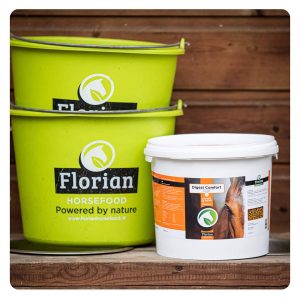
My horse: what does he have on his liver?
The liver is a very important organ.
For example, the liver ensures that toxins and waste products are filtered out of the blood.
However, problems occur more often than you think.
Yellow mucous membranes, a dull coat, decreased appetite, colic, lethargy and emaciation can be symptoms that occur with problems with the liver.
In this blog, we zoom in on the function of the liver.
Conversion Laboratory
Everything that passes through the stomach and intestines eventually passes through the liver.
The liver has an important
function in processing and redistributing energy from carbohydrates, proteins and fats.
The
liver produces bile which plays a role in the digestion of fats.
Unlike humans, the horse does not have a gallbladder and bile flows directly into the small
intestine.
Amino acids are converted into the body’s own proteins needed for muscle building,
optimizing the immune system and blood clotting.
Carbohydrates, such as glucose, are converted into usable energy for the muscles, and in this way the liver acts as a glucose control center.
So you can compare the liver to a nuclear power plant running on different types of energy.
Detox organ
The liver ensures that toxins and waste products are removed from the blood.
The effects of St. James’ wort on the liver is already known to most people but other toxic plants, mycotoxins and waste products from red blood cells, for example, must also be removed by the liver.
So it is clear that the liver is a jack of all trades and without a healthy liver we do not have a healthy horse.
As you can imagine, the intestinal system and the liver are having an extra hard time after, say, a course of medicine or a worm cure.
Would you like to give the liver extra support at these times?
Then take a look at our Golden Herbs mix.
Preventing Problems
An optimal intestinal flora and thus an optimal supply of different substances to the liver is of utmost importance to prevent any problems.
A horse naturally eats many different fibers to optimize its intestinal flora.
Because the hay we usually feed often consists of one grass species, it is useful to feed a roughage mix in addition.
Author: Hilde Vrancken
Veterinary specialist
Discount Applied Successfully!
Your savings have been added to the cart.